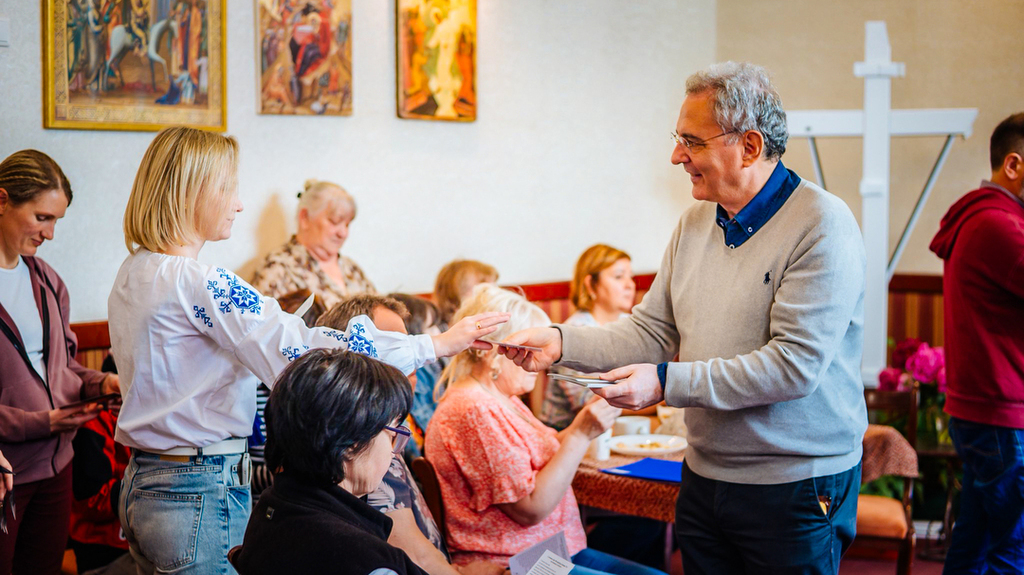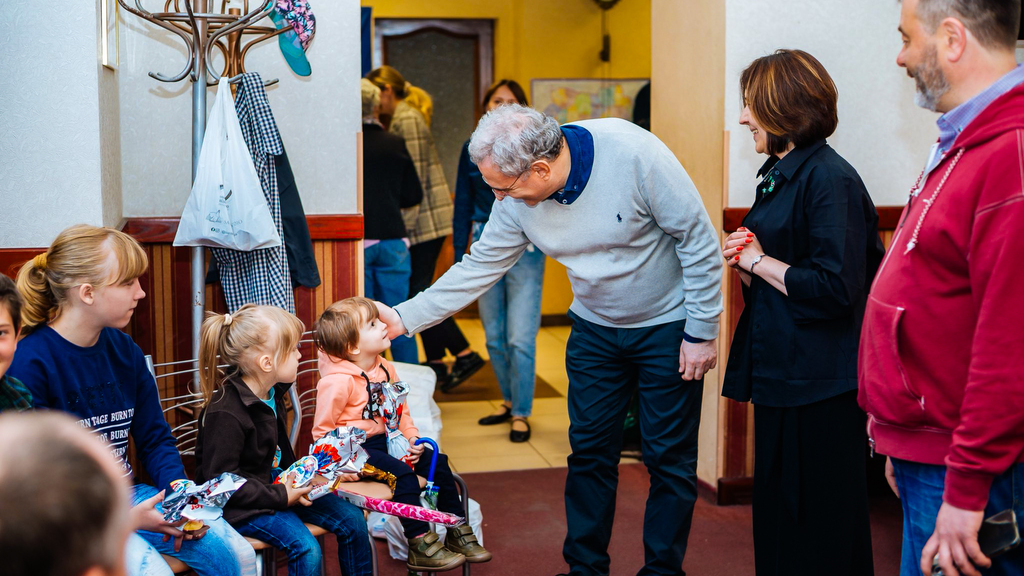War affects the most vulnerable particularly hard. Solidarity with them is an expression of the resistance to war that the Sant'Egidio communities in Ukraine live every day.
The elderly are among those hit hardest by the conflict: already in the first year of the war, they accounted for about one-third of civilian casualties. It is the first time in history that such a large-scale war has impacted an ageing society.
The war in Ukraine has triggered a humanitarian crisis involving the highest percentage of elderly people, particularly those living in frontline zones, not least because they are the ones who have not left these areas. The frailty of the elderly is made more acute by growing loneliness. The high number of men mobilised in the army and nearly 7 million refugees abroad, mostly adults, young people and children (only 6% of refugees outside the country are over 65), have destroyed the informal networks of relatives, friends and neighbours that used to support older people. This loneliness has become even worse for those who have had to leave their homes because of the war and live as internally displaced persons. 51% of Ukrainian elderly people say they feel lonely, a percentage that rises to over 70% among internally displaced elderly people. This group accounts for around 900,000 people, or 24% of all displaced persons.
The commitment of Sant'Egidio in Ukraine is also a response to this loneliness. 1,500 elderly IDPs have been receiving ongoing support by the Community in Ukraine. They include more than two hundred elderly people from the eastern regions of the country and displaced to Lviv, whom the president of the Community, Marco Impagliazzo, visited in the prefabricated settlement on the outskirts of the city. Caring for the elderly in Ukraine heals one of the wounds caused by the war and thus already lays the foundations for peace. It is the response to a crucial challenge for the future of the country, in which the elderly are set to become an even more significant part of the population. Intergenerational encounter is a key path to the future. The ‘teens’, youth for peace, including IDP teenagers, take care of the elderly in the Houses of Friendship and give them back their joy and hope.
By supporting IDP families, the Community has got to know many children and teenagers who bear the scars of war.
The war has had a profound impact on their lives: air raid sirens and bombings, shelters, direct witness to the violence of war, loss of family members, absence of fathers enlisted in the army, forced displacement from their homes, life as IDPs and difficult or failed integration into the school system in their place of reception.
About two-thirds of Ukrainian children and adolescents have been displaced during the war. This suffering is evident in children who often do not smile, are aggressive and withdraw into themselves.
The pain of these children has moved the Youth for Peace of the Community, and they have responded to the plight of the little ones in Ukraine. During these years of war, eleven Schools of Peace have been opened, now involving about 400 IDP children or children who have suffered the trauma of war in some way. The Schools of Peace are located in Lviv, Ivano-Frankivsk, Kyiv, and also in Irpin, a town near Kyiv hard hit in the early months of the war, and in Kharkiv, where the School of Peace is shoused in the premises of an air-raid shelter offered by a school.
The Schools of Peace have given many children back their smiles, their joy to be together, and the chance to dream. The meeting in Kyiv and Lvivof Marco and the delegation from Rome with the children was significant, as it provided an opportunity for an exchange of stories between the Schools of Peace in Rome and Ukraine.
Forty months of large-scale war in Ukraine have passed to date. Solidarity with the Ukrainian people during these long months has been an expression of resistance against the perverse logic of war and, day after day, a source of hope and rebirth in the lives of people in what Pope Francis called a ‘martyred land’.















